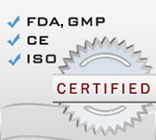
ELISA Kits
- • Anemia ELISA kits
- • Allergy ELISA kits
- • Autoimmune Disease kits
- • Bone Metabolism ELISA kits
- • Blood bank ELISA kits
- • Cancer ELISA kits
- • Cardiac Markers ELISA kits
- • Diabetes Assays ELISA kits
- • Drug test ELISA kits
- • Fertility ELISA kits
- • Food ELISA kits
- • Infectious Disease ELISA kits
- • Other ELISA Kits
- • Parasitology ELISA kits
- • Steroid ELISA kits
- • Thyroid ELISA kits
Rapid Tests
- • Allergy Rapid tests
- • Bone Metabolism
- • Cancer Rapid tests
- • Cardiac markers Rapid tests
- • Drug Tests
- • Fertility Rapid tests
- • Hepatitis Panel
- • Infectious Disease & other tests
- • Other
- • Ovulation Rapid tests
- • Pregnancy tests
- • Urine Reagent Strips tests
IFA Kits
Chemiluminescence Immuno Assays
- • Allergy Assays
- • Autoimmune Thyroid Assays
- • Cardio-Vascular Monitoring
- • Diabetes Assays
- • Fertility Assays
- • Growth Deficiency
- • Infectious Disease Assays
- • Others
- • Steroid Assays
- • Thyroid Assays
- • Tumor Marker Assays
Serology Tests
- • ASO (Anti-Streptolysin-O)
- • CRP (C-Reactive Protein)
- • Mono (Infectious Mononucleosis)
- • RF (Rheumatoid Factor)
- • RPR (Rapid Plasma Reagin)
- • SLE (Systemic Lupus Erythematosus)
Instrumentation



FTA-ABS (Syphilis) IFA Kit - (Immunofluorescence Assay)
| Name |
FTA-ABS (Syphilis) IFA Kit - (Immunofluorescence Assay) |
|---|---|
| Category Name | Bacterial Disease |
| Test | 10 x 10 wells |
| Method | IFA Fluorescent Treponemal Antibody Absorption |
| Principle | Qualitative |
| Sample | 10 uL |
| Total Time | ~ 110 Min. |
| Shelf Life | 12 Months from the manufacturing date |
 |
 |
 |
FTA-ABS (Syphilis) IFA Kit - (Immunofluorescence Assay) description:
The Diagnostic Automation Fluorescent Treponemal Antibody-Absorption (FTA-ABS) Test System is a
modification of the standard FTA-ABS test designed to confirm positive non-treponemal screen reagin tests for syphilis. The DAI. FTA-ABS test system employs nonviable T. pallidum (Nichols strain) cells as a substrate (antigen). The reaction occurs in two steps; (1)The substrate cells are reacted with specially treated patient sera in the first step. If the treponemal antibodies are present in the patient sera, an antigen-antibody reaction takes place between the substrate cells and the circulating anti-treponemal antibodies in the patient sera. (2)In the second step, goat anti-human immunoglobulin labeled with fluorescein isothiocyanate (FITC) is added to the T. pallidum substrate cells. The substrate cells are then examined with a fluorescence microscope. The intensity of staining is graded on a scale of 1+ to 4+ or as negative (no fluorescence).
Only freshly drawn and properly refrigerated sera, obtained by approved aseptic venipuncture procedures, should be used in this assay (16, 17). No anticoagulants or preservatives should be added. Avoid using hemolytic, lipemic, or bacterial contaminated sera. Sera should be stored at 2-8��C for no longer than 5 days. If delay in testing is anticipated, store test sera at -20��C or lower. Avoid multiple freeze/thaw cycles which may cause loss of antibody activity and give erroneous results.
ELISA kits - Rapid tests- Drug tests- Pregnancy test - IFA kits - CLIA assays - Serology tests - Instrumentation
©1992 Diagnostic Automation/Cortez Diagnostics Inc. All rights reserved.








